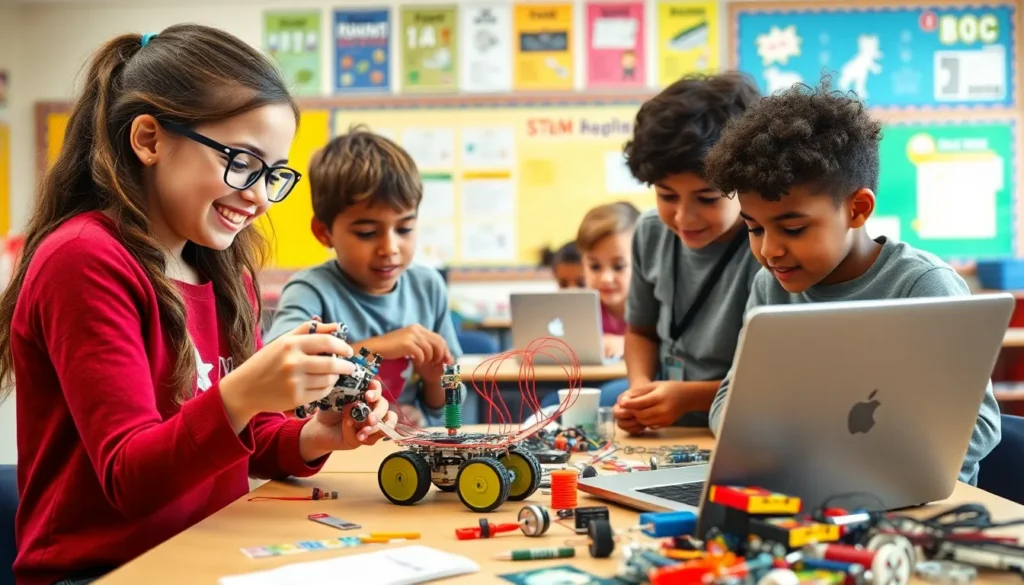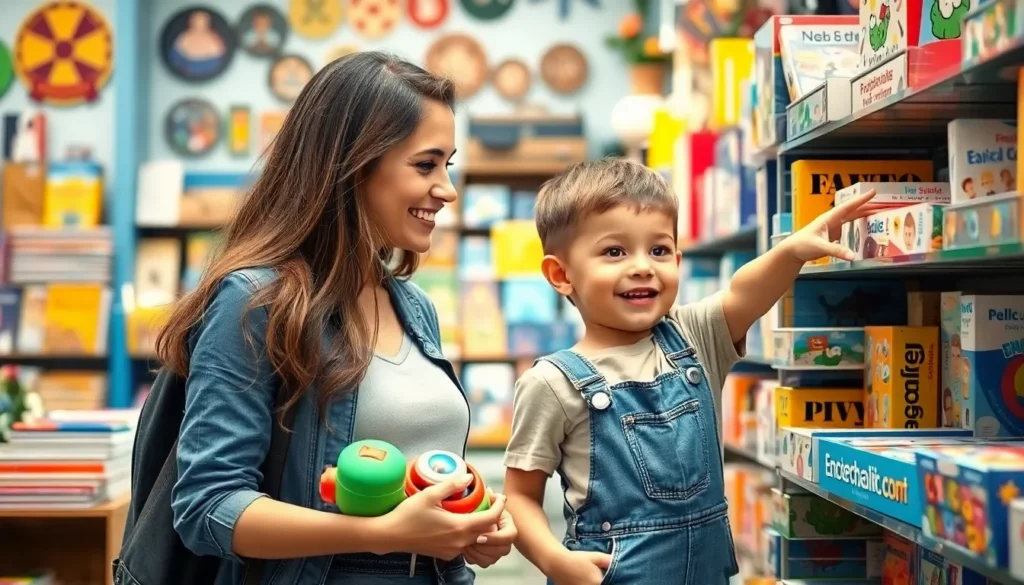Table of Contents
ToggleIn a world where tiny humans seem to have boundless energy and an insatiable curiosity, homeschooling preschool might just be the secret sauce for nurturing their bright minds. Imagine transforming your living room into a vibrant classroom filled with laughter, creativity, and the occasional crayon masterpiece on the wall. It’s not just about avoiding the morning rush; it’s about crafting a personalized learning experience that fits your child like their favorite superhero cape.
What Is Homeschooling Preschool?
Homeschooling preschool is an educational approach that takes place in the home for children typically aged three to five. This model allows parents or guardians to guide their children’s early learning experiences in a personalized setting. Flexibility defines this approach, enabling families to tailor lesson plans according to their child’s interests and learning pace.
Parents can incorporate a variety of subjects, including basic literacy, math, science, and art, through hands-on activities. Engaging children in everyday tasks enhances their education by bringing subjects to life. Incorporating games and play-based strategies fosters development while ensuring that learning remains fun and interactive.
Some families choose specific curricula designed for homeschooling preschool. These resources often provide structured guidelines, lesson plans, and activity suggestions aimed at promoting early childhood development. Various options exist, including online platforms and printed materials, making it accessible for different family needs.
Additionally, socialization opportunities play a vital role in the preschool experience. Parents often seek playdates, community classes, or local groups where children can interact with peers. This balance of structured learning and social engagement supports holistic child development.
Ultimately, homeschooling preschool encourages creativity and fosters a strong family bond. It enables children to explore their interests within a safe and loving environment while gaining foundational skills that prepare them for future education.
Benefits Of Homeschooling Preschool

Homeschooling preschool offers unique advantages that support a child’s early development and learning. Families often find that this method enhances creativity and fosters strong relationships.
Flexibility In Learning
Flexibility plays a key role in homeschooling preschool. Parents can adapt schedules to fit their child’s unique rhythms, ensuring lessons occur when a child is most alert and engaged. It allows for spontaneous explorations, such as turning a nature walk into a science lesson. Learning doesn’t solely happen during traditional school hours; it can also occur in various environments. Parents can integrate everyday experiences into the curriculum, making connections to real-world scenarios. For instance, cooking together becomes an opportunity to discuss measurements and nutrition.
Tailored Curriculum
A tailored curriculum caters to individual learning styles and interests. Parents can choose activities that align with a child’s preferences, promoting deeper engagement. Customized learning experiences often include hands-on projects that resonate with their innate curiosities. For example, a child fascinated by dinosaurs might explore books and activities centered around that theme. This method nurtures a love of learning while prioritizing foundational skills in literacy, math, and social sciences. Incorporating diverse resources, such as interactive apps or local library programs, enhances the educational experience. Homeschooling provides the flexibility to pivot when necessary, ensuring the learning remains relevant and enjoyable.
Challenges Of Homeschooling Preschool
Homeschooling preschool comes with its own set of challenges, impacting both parents and children. Effective time management emerges as a significant concern. Balancing educational activities with everyday responsibilities can prove difficult. Parents often juggle household tasks, work commitments, and lesson planning simultaneously. Structuring a daily schedule that accommodates learning can minimize chaos. Consistency is essential, as routines help preschoolers feel secure and focused.
Resources and support also present obstacles. Parents may struggle to find appropriate materials for various subjects. Additionally, locating local community classes or extracurricular activities can be challenging. Many families feel overwhelmed by the abundance of curriculum options available online. Choosing the right resources tailored to a child’s unique learning style fosters engagement. Building a network with other homeschooling families can provide valuable insights and encouragement, enhancing the overall experience.
Effective Strategies For Homeschooling Preschool
Successful homeschooling of preschool-aged children requires strategic planning and engaging activities. The aim is to create a nurturing and stimulating environment that promotes learning.
Creating A Schedule
Establishing a daily schedule helps provide structure and predictability. Morning activities can include simple tasks such as reading and counting. Midday routines might involve playtime or outdoor exploration, allowing children to experience different subjects firsthand. Parents can incorporate breaks for snacks and free play, ensuring time for relaxation and creativity. Additionally, consistency in timing fosters a sense of security for young learners. Flexibility remains key, allowing adjustments as needed to accommodate children’s moods and needs.
Engaging Learning Activities
Incorporating hands-on activities makes learning enjoyable and memorable. Arts and crafts projects can target fine motor skills while introducing concepts such as colors and shapes. Storytime sessions encourage imagination and language development, with discussions following to reinforce comprehension. Nature walks offer opportunities to explore science through observation, sparking curiosity about the environment. Simple cooking projects can teach measurements and foster teamwork while promoting healthy habits. These engaging activities provide a rich learning experience, catering to various interests and learning styles.
Homeschooling preschool offers a unique opportunity for parents to nurture their child’s natural curiosity and creativity. By creating a vibrant learning environment at home, families can foster a love of learning that lasts a lifetime. This personalized approach not only strengthens family bonds but also allows children to explore their interests in a safe and supportive setting.
While challenges exist, such as balancing time and resources, the rewards of tailored education far outweigh the difficulties. With strategic planning and engaging activities, parents can create a fulfilling educational experience that prepares their children for future success. Embracing the flexibility of homeschooling can lead to a joyful and enriching journey for both parents and preschoolers alike.







